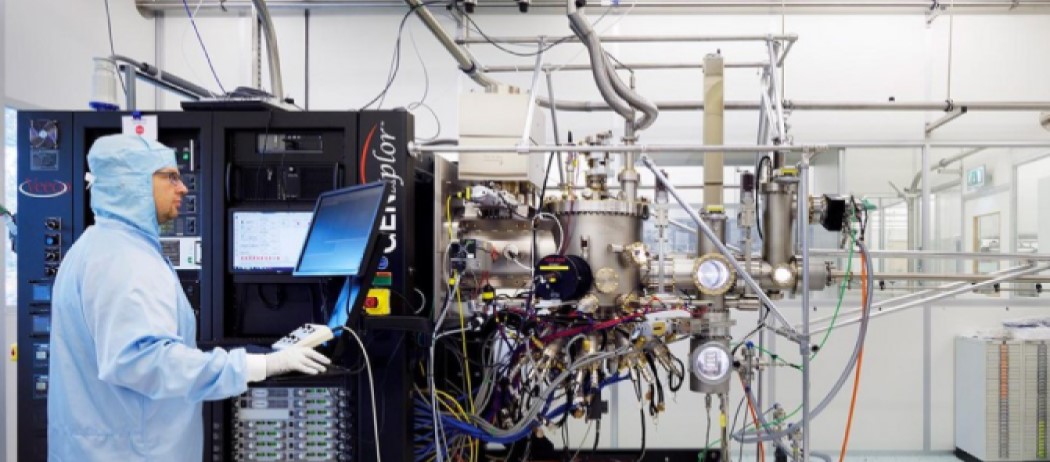
Photo: TU/e website.
The Dutch government’s National Growth Fund aims to ensure that the prosperity of the Netherlands is also guaranteed for the future. TU/e plays a key role in this ambition, as demonstrated when the second round of subsidies were awarded just before Easter. No fewer than seven projects involving researchers from our university were rewarded. In a series of articles we highlight the four projects with our greatest contribution. Today we focus on PhotonDelta, a consortium of dozens of knowledge institutions and companies that, with a total investment of 1.1 billion euros, aims to make the Netherlands a world leader in the next generation of semiconductors, and of which TU/e has been an important driving force.
Photonic chips, which use light instead of electricity, are the future. They are paving the way for autonomous vehicles, innovations in healthcare, and energy-efficient data transfer and telecommunications.
Today's electronics are increasingly struggling to transmit information. The limiting factor is resistance, which converts to heat and weakens the signal as electrons travel through the copper lines between transistors in and between chips. The resulting energy loss makes it increasingly challenging to process large amounts of information in data centers in an energy-efficient manner.
Unlike electrons, photons experience no resistance due to their lack of mass and charge. Light also has properties that allows it to carry much more information. This makes it the ideal technology to accelerate the transfer of data within and between chips in an sustainable way,
As with electronic chips, photonic chips (PICs) are made using so-called wafer technology. This means the chips can be produced in large quantities, resulting in lower costs.
Ecosystem
In the coming years, the cabinet will allocate 470 million euros to accelerate the development of this promising technology. In addition to the contribution from the National Growth Fund, more than 600 million euros has been furnished by companies and other partners, bringing the total investment in the coming years to 1.1 billion euros.
The investment is part of the Dutch government's national plan to expand our country's position as a world leader in the field of integrated photonics. The European Union has also made photonics a top priority in its effort to make Europe less dependent on chips from other parts of the world.
The money will be used, among other things, to support startups and scaleups, to attract and train talent, and to expand existing production. By 2030, PhotonDelta aims to have grown into an ecosystem with hundreds of companies, customers around the world and a production capacity of over 100,000 wafers per year.
TU/e and photonics
Eindhoven has a long history in world-class research into photonics, which recently received an additional boost with the establishment of the Eindhoven Hendrik Casimir Institute (EHCI). The institute brings together TU/e's research activities in photonics and quantum technology.
An important breakthrough was made by researchers at TU/e some twenty years agowith the development of a standardized production method for photonic chips, the so-called foundry model. This made it possible to realize a large number of different functions with a limited number of building blocks. This concept and the PIC technology developed by TU/e form the basis of the European photonic platform JeppiX.
The research has led to several successful spinoffs, such as EFFECT Photonics and Smart Photonics, which received a 20 million euro grant from the Dutch government two years ago. Partly due to these companies, the Brainport region has become a hotspot in the field of photonics. In addition, TU/e, under the leadership of emeritus professor Ton Backx, was an initiator in setting up PhotonDelta and the National Plan Integrated Photonics, which laid the foundation for the Growth Fund program.
Andrea Fiore, who was involved in the application on behalf of TU/e, is very pleased with the government's investment. "This grant, combined with the money from the other partners, makes it possible to make the Netherlands the center of the next generation of semiconductors. With our extensive knowledge in the field of chips built on InP (Indium Phosphate), we can make an important contribution to realizing this dream."
Consortium
TU/e is collaborating in this project with PhotonDelta, University of Twente (UT), Delft University of Technology (TUD), Holst Centre, TNO, IMEC, Smart Photonics and Lionix International, among others.
More information about photonics research at TU/e can be found on the site of the Eindhoven Hendrik Casimir Institute.
This article was first published on 26 April by TU/e.





 A unique international forum for public research organisations and companies to connect their external engagement with strategic interests around their R&D system.
A unique international forum for public research organisations and companies to connect their external engagement with strategic interests around their R&D system.